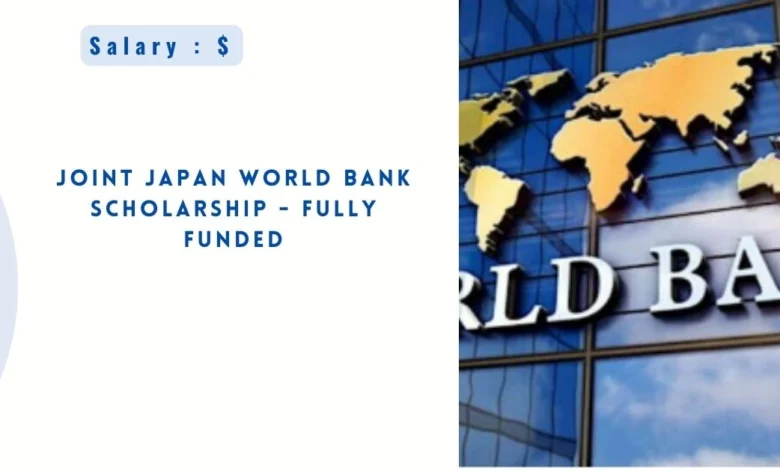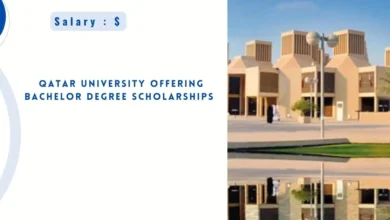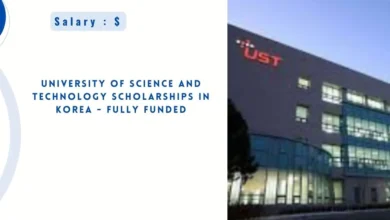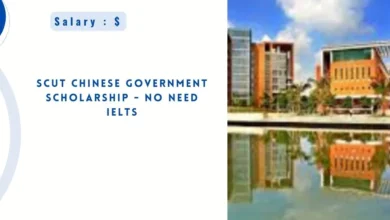Joint Japan World Bank Scholarship – Fully Funded

Applications for the 2025 Joint Japan World Bank Scholarship are now being accepted. International students can apply for a fully funded scholarship to study for a master’s degree at one of the partnering universities in the United States, Europe, Africa, Oceania, or Japan. 24 universities provide 41 Master’s degree programs that are eligible. To be eligible for the World Bank Scholarship Program, you need to have been given an unconditional offer.
Only candidates who have been unconditionally admitted to one of the master’s programs that participate in the JJ/WBGSP will receive the Joint Japan World Bank Scholarship Form. The World Bank Scholarship does not require an application fee. Additional information regarding the Master Program eligible for the World Bank Scholarship, suitable universities, financial benefits, and the application process may be found below.
Details of Joint Japan World Bank Scholarship
- Host Countries: U.S., Europe, Africa, Oceania, and Japan
- Degree Level: Masters Program
- Funded by: World Bank Group
- Financial Benefits: Fully Funded
Read Also: Asia Pacific University MEXT Scholarship in Japan without IELTS
Financial Benefits
For overseas students, the World Bank Graduate Scholarship Program (JJ/WBGSP) offers substantial financial assistance. Benefits covered include the following:
- Round-trip Economy Class Airfare:
- Round-trip economy class airfare from your home country to the host university and back is covered by the scholarship.
- Additional Airfare Allowance:
- An additional flight allowance of $600 is offered for each trip.
- Full Tuition Fees:
- The entire cost of tuition for the graduate program is covered by the scholarship.
- Comprehensive Medical Insurance:
- During the study year, the scholarship offers medical insurance to cover relevant costs.
- Monthly Stipend:
- A monthly stipend is provided to help cover living expenses during the study period.
- Bachelor’s students: $1000/month
- Master’s students: $1500/month
- PhD students: $2500–$3000/month
- A monthly stipend is provided to help cover living expenses during the study period.
- Accommodation:
- Accommodation expenses for the duration of the program are covered by the scholarship.
- Food:
- Included is a food stipend to assist with living and dining costs.
- Books:
- During the academic year, a book allowance is given to cover the expense of study materials.
Participating Universities
Candidates must submit an application to one of these universities’ eligible master’s programs.
- Australian National University
- Brandeis University
- Columbia University
- Erasmus University
- Harvard University
- IHE Delft Institute for Water Education
- Johns Hopkins University
- Keio University
- KIT – Royal Tropical Institute
- London School of Economics and Political Sciences
- National Graduate Institute for Policy Studies (GRIPS)
- Saitama University
- SOAS – University of London
- Stanford University
- University of California-Berkeley
- Université Clermont-Auvergne
- Université Félix Houphouët Boigny
- University of Leeds
- University of Oxford
- University of Tokyo
- University of Tsukuba
- Williams College
- Yale University
- Yokohama National University
Eligible Master Programs
- Master of Climate Change
- Master of Environmental and Resource Economics
- Master of Environmental Management and Development
- Master of Public Policy
- Master of Arts in Global Sustainability Policy and Management
- Master in Global Health Policy and Management
- MPA in Economic Policy Management
- MPA in Global Leadership
- MPA in Development Practice
- Master of Public Administration
- MSc in Urban Management and Development — Four Tracks
- Urban Digital Transformation & Innovation: Governance and Economics of Cities
- Urban Housing & Land Justice: Equitable Access to Sustainable Land, Housing & Services
- Urban Environment, Sustainability & Climate Change: Integrated Management of Land, Water and Air
- Strategic Urban Planning & Policies: Managing Socio-Spatial Dynamics for Sustainable Cities
- Master in Development Studies
- Master of Public Administration in International Development
- MSc in Water and Sustainable Development — Water, Food and Energy Track
- MSc in Water and Sustainable Development — Water Hazards, Risks and Climate Track
- MSc in Water and Sustainable Development — Water and Health Track
- MSc in Water and Sustainable Development — Water Resources and Ecosystem Health Track
- Master of Public Health
- Master in Taxation Policy and Management
- MS in Public Health and Health Equity
- MSc Development Management
- MSc Development Studies
- MSc Global Health Policy
- MSc International Social and Public Policy
- Tax Course of the Public Finance Program
- International Graduate Program on Civil and Environmental Engineering
- MSc Development Economics
- MSc Economics
- Master in International Policy
- Master of Development Practice
- Master in Economic Policy Management
- Economic Policy Management Program (GPE)
- Master of Public Health (International)
- MSc Sustainable Cities
- MSc Water Sanitation and Health Engineering
- MSc Sustainable Food Systems and Food Security
- Master of Public Policy
- MSc in Refugee and Forced Migration Studies
- Master of Public Policy, International Program
- International Program on Agricultural Development Studies
- Master’s Program in Economic and Public Policy
Eligibility Criteria
- Nationality: Must be a national of a World Bank-member developing nation.
- Citizenship: No developed nation’s dual citizenship is permitted.
- Health: Needs to be in excellent health.
- Education: A bachelor’s degree (or its equivalent) earned three years or more prior to the application deadline is required.
- have been accepted without reservation into a participating program by the deadline for scholarship applications.
- Professional Experience: Within the last six years, you must have worked full-time, for pay, in a development-related capacity for at least three years. Working part-time could be an option.
How to Apply
Conclusion:
Students from disadvantaged nations have a fantastic opportunity to pursue graduate studies at prestigious universities throughout the world through the Joint Japan World Bank Scholarship. Students can concentrate on their academic and professional development while supporting global development initiatives thanks to the scholarship’s excellent financial benefits, which cover tuition, living expenses, and more. To take advantage of this transformative opportunity, make sure you meet the requirements and apply to Master’s programs that are eligible.
Frequently Asked Questions
-
What are the financial benefits of the scholarship?
The scholarship covers round-trip airfare, full tuition fees, medical insurance, monthly stipends ($1,500 for Master’s students), accommodation, food, and a book allowance.
-
What are the eligibility criteria?
Candidates must be citizens of a developing country that is a member of the World Bank, possess a bachelor’s degree, have worked in a field related to development for at least three years, and be in good health.




